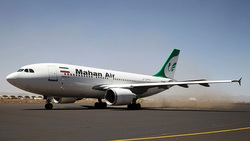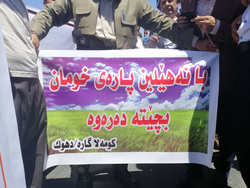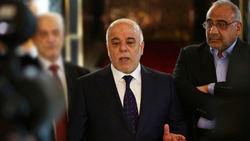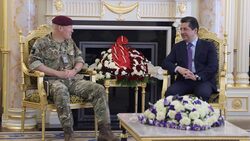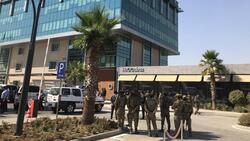Insights from "National Thought in Barzan Sufism" seminar at Wafa'i Hall, Erbil
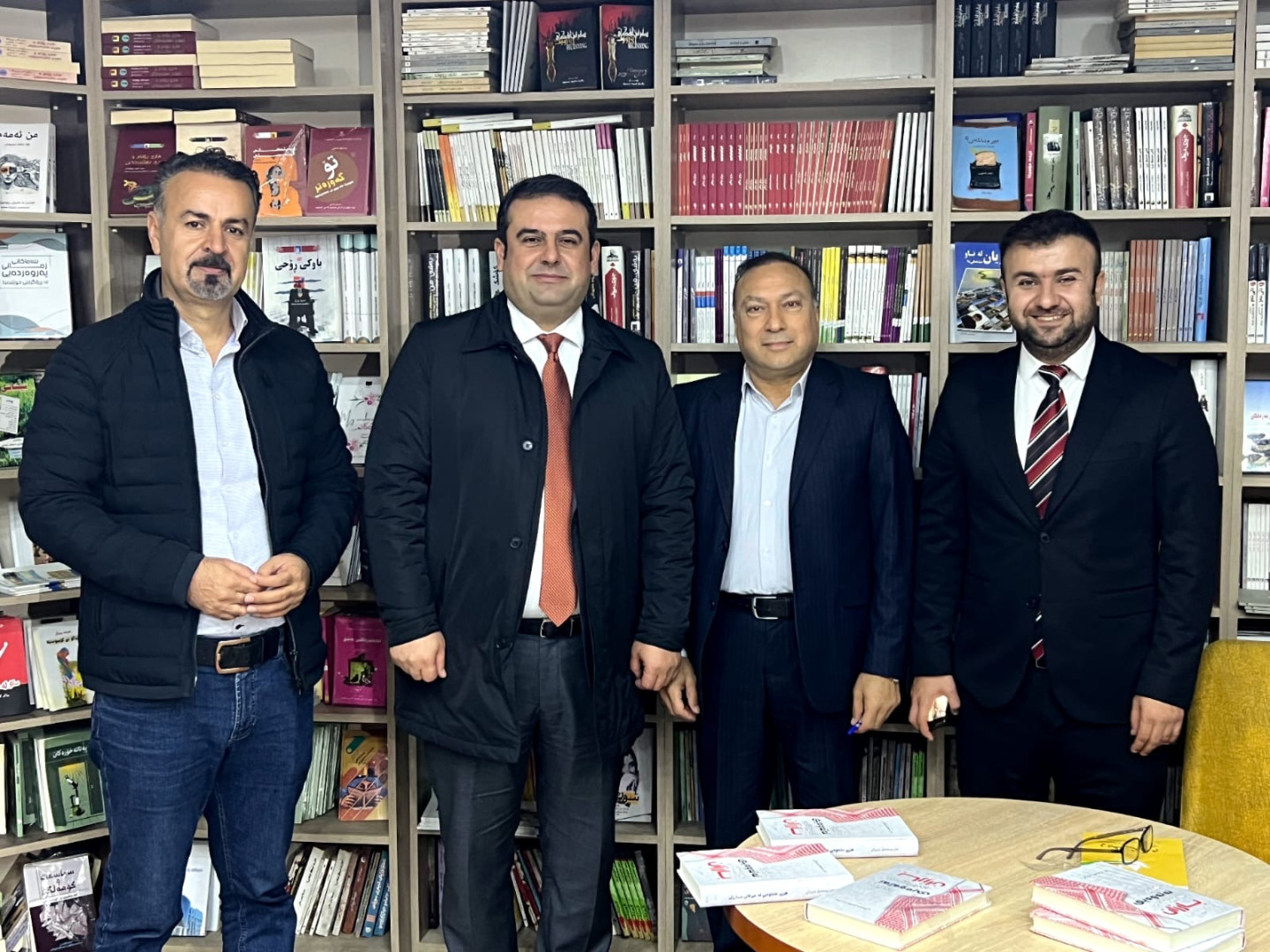
A special seminar took place at the Wafa'i Hall in the city of Erbil, the capital of the Kurdistan Region, on Monday, attended by numerous university professors, intellectuals, party officials, government representatives, and journalists.
Dr. Bazar Othman Ahmed, a lecturer in the Department of History at Soran University, "conducted a scholarly assessment during the seminar of 'National Thought in Barzan Sufism' by author Badr Shirouki. The author also delivered signed copies of the book as presents to the attendees.
The book explores multiple facets, consistently emphasizing the introduction of national thought among the Barzani community, including themes of compassion for humanity, admiration for nature, advocacy for environmental rights, animal welfare, and human rights.
This book goes beyond a historical narrative and instead offers a comprehensive examination of historical events. It aims to uncover the underlying reasons and motivations that shaped these events within their respective time periods.
The seminar addressed various subjects examined in the book, including the importance of the book itself. Dr. Bzhar emphasized the significance of this project as a fresh and distinctive initiative in defining Barzani Sufism. The author adeptly recorded and documented these narratives, drawing on their extensive understanding of Sufism and Barzani mysticism acquired through oral discussions.
Moreover, the book serves as a valuable resource for understanding historical and military events or Barzani movements in general, shedding light on the clandestine or internal aspects of Barzani movements and historical occurrences.
An important facet of the book is its detailed analysis of Barzani beliefs, showcasing national sentiments, rights of nature, animal rights, respect for human rights, national pride among the Barzani people.
The author traced the lineage of prominent Barzani figures, utilizing various manuscripts and sources attributing the ancestors of the Barzanis to Mir Masoud, who was a prince in the Emirate of Amedi and later settled in Amedi, then Barzan. Mir Masoud was known as a pious and devout man. If we trace this family back to Mir Masoud, starting with Masoud Barzani, it follows as: Masoud Barzani, son of Mullah Mustafa Barzani, son of Sheikh Mohammed Barzani, son of Sheikh Abdul Salam Barzani the First, son of Mullah Abdullah bin Mullah Mohammed bin Mullah Abdul Rahman bin Maulana Taj al-Din, son of Mullah Saeed, son of Mir Masoud.
Regarding the book's composition, the author employed four main methods typical in historical research.
Firstly, the analytical method: The author relied on analyzing and interpreting the other side of Barzani's historical events
Secondly, the comparative approach: Frequent comparisons were made among sources and information in the transmission of knowledge.
Thirdly, the descriptive method: This method predominantly appeared in discussing and describing intellectual and mystical subjects.
Fourthly, the oral history method: Utilized globally in universities and historical research in Iraq and Kurdistan, it involves narrating information passed down orally from the recent past.
The distinction in this book lies in its deviation from mere historical events and subsequent analyses. Instead, the author focused on evaluating and analyzing the alternative perspective of these events.
In addition, the author explained a novel method for leadership, referred to as dual retreat and dual leadership. This pattern recurs throughout the reign of Sheikh Ahmed Barzani and Mullah Mustafa Barzani. Subsequently, during the Kurdish freedom movement during the Gullan Revolution, a comparable trend emerges involving Idris and Masoud Barzani, albeit within a different framework, spearheading a nationalist movement that operates independently from Barzani's takiyah and leadership.
Key chapters in the book cover the revolution's leaders, the liberation movement, and independence, specifically: Sheikh Mohammad son of Sheikh Abdul Salam Barzani, Sheikh Abdul Salam Barzani II son of Sheikh Mohammad, Sheikh Ahmed son of Sheikh Mohammad, Mullah Mustafa son of Sheikh Mohammad, and Masoud Barzani son of Mullah Mustafa Barzani.
Another point in the book addresses the differences between the Naqshbandi and Barzani Sufisim , including:
Firstly, the disciples of the Barzani Sufisim order had a role in appointing a specific sheikh for themselves. However, the appointment of the sheikh did not extend beyond the Barzani sheikh family. Conversely, in the Naqshbandi order, the role of sheikhhood often does not pass from father to son but from the sheikh to the committed disciple and believer.
Secondly, in the Naqshbandi order, there is no belief in using weapons, and their gatherings and spiritual practices are often conducted in strict secrecy. Conversely, within the Barzani Sufi order, there is a steadfast belief in the necessity of a strong armed force for the survival of the order and the Sufi path.
The variations observed between the Barzanis and Naqshbandis seem to be shaped by the geographical, religious, and political circumstances that exist in the region.
The book also emphasizes the importance of dignity. The recognition of this dignity was achieved through a sequence of choices that emphasized the need for Barzan takiyah to be apart from any other takiyah and to maintain its own integrity and independence. The leaders of Barzani made the decision to integrate themselves into the local community and avoid alienating themselves from the impoverished population of the region.
Barzani leaders decided to live among the poor, not distinguishing themselves from the locals. To achieve this, Sheikh Mohammad made several decisions executed in his home:
Firstly, prohibiting the consumption of wheat bread, a luxury at that time only affordable to the affluent.
Secondly, forbidding his family and relatives from wearing colorful clothes and accessories, acknowledging the poverty of that era where they could not afford modern and colorful clothing.
Thirdly, his family was not allowed to sit or sleep on soft beds but rather on hard ones, ensuring they would not forget the difficult life of the poor.
Fourthly, Sheikh Barzani's homes were to be built not with costly materials like stone and plaster but with bricks and mud, similar to the houses of the local poor.
Finally, due to the implementation of these reforms and measures, incidents of theft and crime were completely eradicated within the territories under Barzani's jurisdiction. The adherence to the directives of Barzani Sheikhs ensured an enduring shield against unlawful activities and wrongdoing.
